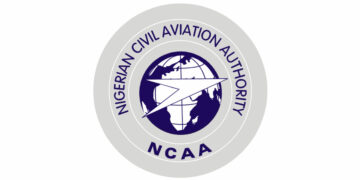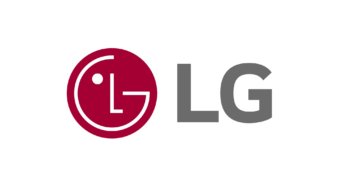Aviation sector is presently at a crossroads over the operational method, profitability and jobs the the proposed national carrier, Nigeria Air as rolled out by the Federal Ministry of Aviation will create for the nation’s economy.
Apart from starting the airline with leased aircraft, stakeholders are also worried about the incessant change in takeoff date.
According to stakeholders, the wet lease model would mean taking both the foreign aircraft along with the foreign crew that would be paid salaries and allowances in foreign currency. Also the maintenance and other services would be done by the owners of the aircraft off shore, thereby, being at loss to the nation.
Also, incessant postponement has been a source of worry to stakeholders, who argued that a national carrier without a startup date 10 months to the expiration of the present administration means the project is a white elephant project.
However, with the numerous fund it has drawn from the national budget, they fear that starting up the national carrier at this challenging time in the sector may be ill advised.
Speaking on the operational model of the airline, the President of Aircraft Owners and Pilots Association, Capt. Alex Nwuba, stated that the airline can hardly survive with wet lease aircraft.
In his words: “The market exists. Airlines are operating in this market, they have challenges with the price of fuel, and they have challenges with foreign exchange to pay suppliers. You even have the challenge of airlines that are selling tickets; hundreds of millions of dollars that cannot repatriate those funds. How will these three planes operate on the basis of wet lease?
“So how does that solve our problem as a nation in terms of creating employment as an industry? How does that solve the problem of foreign exchange that we are already facing because we had to pay for that wet lease in foreign exchange?
“How does that solve the problem of availability of funds through the central bank or will the national carrier get its money through the black market to fund its operation? It is absurd; it’s essentially an absurd proposal made to a group of people that have no knowledge of what’s going on.”
Similarly, principal managing partner, Avaero Capital Partners, Sindy Foster, noted that the arguments in favour of the national carrier are that it will increase capacity, reduce the cost of tickets, and add employment.
“However, it will likely operate at the expense of the domestic airlines, backed by government money, and all the largesse that goes with that privileged position. Therefore, it will disadvantage domestic airlines who won’t be able to compete with the bulk purchasing of fuel, or the dollars which appear to be available to the national carrier; so instead of increasing the market, the market will retract.
“The three aircraft which the national carrier is bringing can easily displace 10 aircraft of airlines currently struggling. When supply retracts, prices will go up.
“In terms of employment, the project is starting off on the wrong foot. It has been reported that the three aircraft will be wet-leased which means that the crew will not be Nigerian. For a national carrier which was positioned as a generator of employment for Nigerians, this will be a kick in the teeth.’’
On his part, the secretary general, Aviation Round Table Initiative (ARTI), Capt. John Ojikutu (rtd), said the national carrier is a still-born project that won’t see the light of the day talkless of being profitable.
According to him, he has shown his objection to the birthing of a national carrier publicly, saying it a political class spending.
He said, “I am not too surprised about the hawking of the National Carrier going on today in an election year. All the political office holders spendings come up only about quarter to go or in election year.’’
The N19.5bn intervention funds for government agencies came in 2007 election Year; N200bn intervention funds for private airlines came in 2011 election Year; request for N64bn for Abuja second runway came in 2015 election year; though rejected, but came out as N5bn for the Abuja runway repairs.
Ojikutu further said that $338m request for the national carrier in 2019 election year was rejected or better still, stood down by the FEC in November 2019. Am not surprised about the stillborn national carrier coming up again in 2022/2023 election year and I have shown my sincere objections to it publicly.”
According to him, government should have used over 30 aircraft in Arik and aero’s fleet to set up a national carrier instead of setting up a completely new airline.
He said: “Something went wrong with the manner of taking over the receivership of Arik and Aero that those that could have helped with technical and investment support stood aside. At the time of the receivership, the two airlines had over 30 aircraft together in their fleet that could have been used for a national carrier or two flag carriers if their assets and local and foreign debts were well assessed.’’
ing about these were carefully examined.
“Today, how many of those aircraft are remaining in the airlines fleet? What has been the progress made by Asset Management Company of Nigeria (AMCON) that has no knowledge of commercial aviation on the recovery of the debts of over N300bn? Any aircraft leasing company or foreign technical investors looking at the manner the two airlines were run down will be weary to listen to any Nigerian investors except you have the cash,” he said.
Also speaking, an aviation analyst, Engr. Ifeanyi Ogochukwu, declared that the government needed not to invest any amount of money in the impending national carrier project.
Ogochukwu, who is also a Licensed Air Traffic Safety Electronics Specialist charged that the government should take a cue from global trends, which seem to negate state-owned carriers, adding that most governments had divested their interests in their hitherto national carriers.
He said, “Besides, the current Nigeria national carrier journey has had a lot of missteps already, which begs the fact that the government should learn from experience and global trends in this quest and let the airline industry be private-sector driven. Think of it, the huge amount of money spent so far in pursuing the national carrier, what is the benefit of this to Nigerians?
“Most countries that used to have government-funded carriers have either divested completely or have minority stakes where the carriers still exist. This is to ensure that beyond risk mitigation, other drivers for privatisation are allowing the airline’s executive management makes financial and operational decisions free from political pressure or meddling.”
He advised the government to provide national policy directions, strong foreign economic policy for aviation, particularly Bilateral Aviation Agreement (BASA) administration, address the multiple destinations and codeshare agreements with foreign airlines, develop the political will, and create an enabling environment for aviation businesses to thrive.
Ogochukwu also urged the government to ensure total deregulation of the airline industry, just as it happened in the telecommunication industry about two decades ago, adding that a strong and an independent aviation regulator would also move the entire industry forward.




